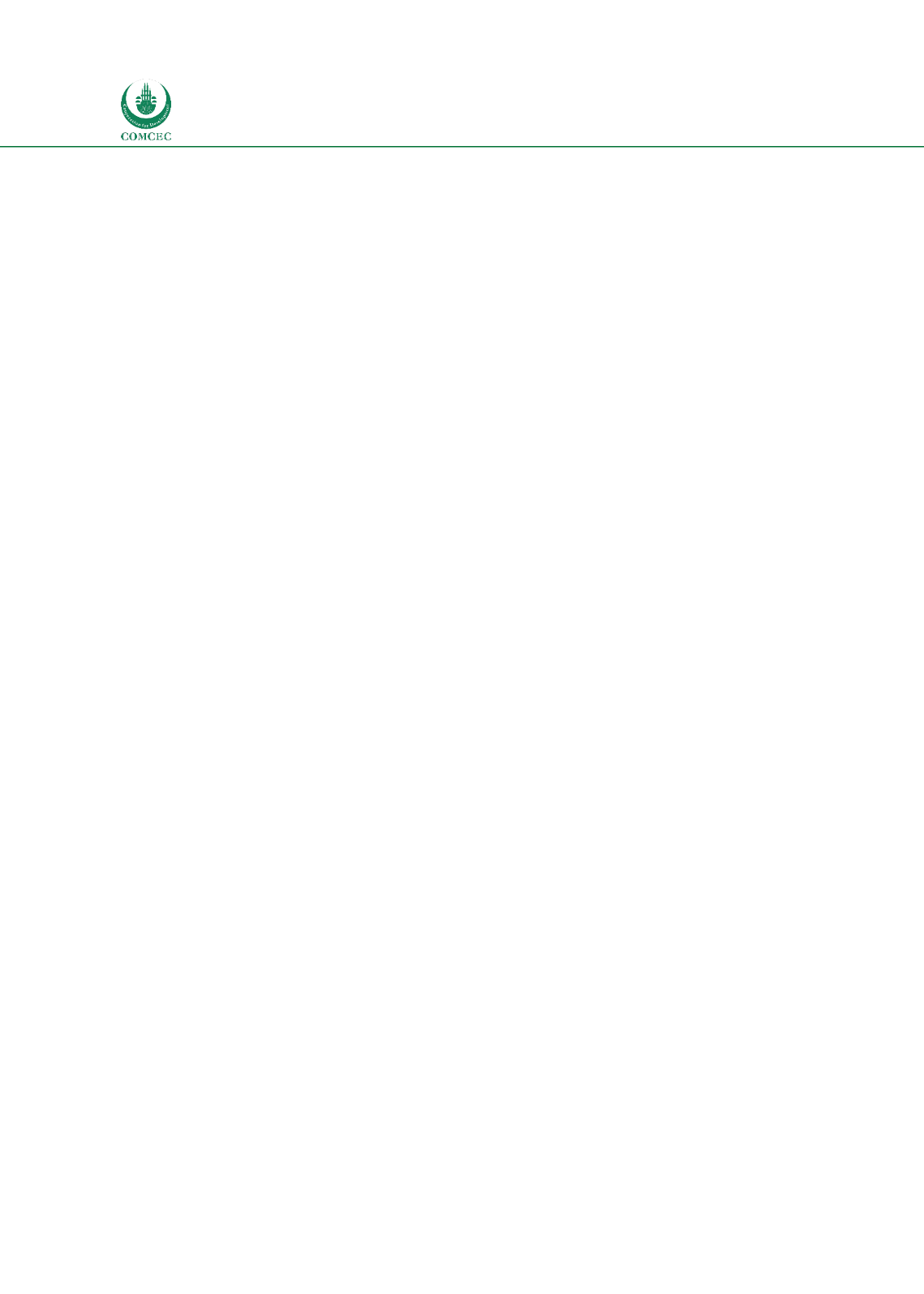

National and Global Islamic Financial Architecture:
Problems and Possible Solutions for the OIC Member Countries
114
international Islamic organizations and bodies to bring the level of Shari’ah compliance of the
country on par with international standards. With a view to assisting the Mudaraba sector in
resource mobilization, modarabas have been allowed to issue Musharaka based Term Finance
Certificates on the basis of profit and loss sharing principles.
4.7.3.
Shariah
Governance Framework
The State Bank first issued a detailed set of instructions and guidelines for Shariah compliance
and governance in the IBD Circular No. 2 of 2008. These instructions were revisited and a
comprehensive Shariah Governance Framework (SGF 2015) was introduced in July 2015. The
SGF 2015 provides for central Shariah Boards at the level of the State Bank of Pakistan and
Shariah Boards (SB) in IBIs that include Islamic banks, Islamic banking subsidiaries or the
Stand-alone Islamic banking divisions of the conventional banks. The Shariah Board at the
State Bank of Pakistan comprises a minimum of 6 members – three Shariah scholars, one of
whom is appointed as the Chairman, an accountant member, a lawyer member, and the Head
of the SBP’s Islamic Banking Department as Member-secretary and banker member.
At the bank level, the governance activities are to be performed by the BOD, Shariah Board,
resident shariah board member (RSBM), Head Shariah Compliance Division (SCD), Head
Shariah Compliance Department, In-charge Shariah Audit Department and In-charge Shariah
Research/Review Department of the respective IBIs. The roles of internal and external
auditors have also been defined. The BOD of each IBI must constitute a Shari’ah Board
comprising at least three Shari’ah Scholars appointed as per the SBP’s ‘Fit and Proper Criteria’
(FAPC) and must be subject to prior written approval of the SBP. The IBI, in consultation with
the SB, can also engage professionals like lawyers, accountants, economists to act as SB
members, but such non-Shariah scholar members shall not have voting rights in the SB
meetings. The SB is expected to discharge its duties independently and objectively and the
decisions/fatawa of the SB are binding on the Bank. In case of a disagreement between the SB
and the management, the matter may be referred to the SBP. Every executive of the IBI shall
ensure that all the procedure manuals, product programs, checklist etc as approved by the SB,
are made available to and understood by everyone working in his/her respective group/
functional area.
All the decisions/rulings/fatawa of SB shall be in conformity with the directives, regulations,
instructions and guidelines issued by SBP in accordance with the regulations of SBP's Shariah
Board. IBI’s Shariah Board are required to implement the pronouncements of the SBP’s Shariah
Board and its members may not have their own opinion or discretion in any specific issues.
The SB should prepare a report on the Bank’s Shariah compliance environment and conditions
based on the work of internal Shariah audit, external Shariah audit and Shariah compliance
review. The report should be discussed in the BOD meeting and published in the Bank’s annual
report.
As per IBD Circular No 1 of 2010 and Circular Nos. 1and 3 of 2013, SBP adopted several AAOIFI
Shariah Standards with some clarification and/or amendments. Some of the standards include
Standard No.3 (Default in payment by the debtor) with one amendment; Standard No.8
(Murabaha to Purchase orderer) with seven amendments; Standard No.9 (Ijarah and Ijarah
Muntahia bil Tamleek) with four amendments; Standard No.13 (Mudaraba) for financing
adopted without any amendment; Standard No 17 on Investment Sukuk with 15
















